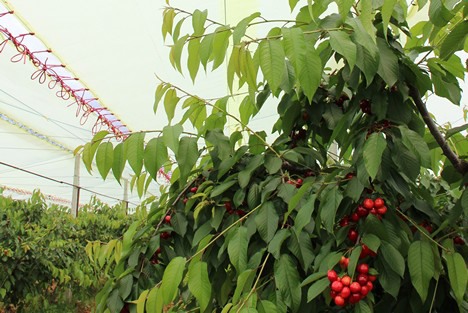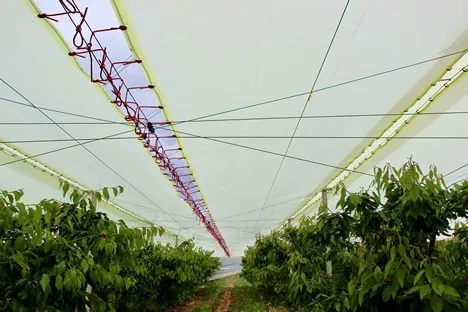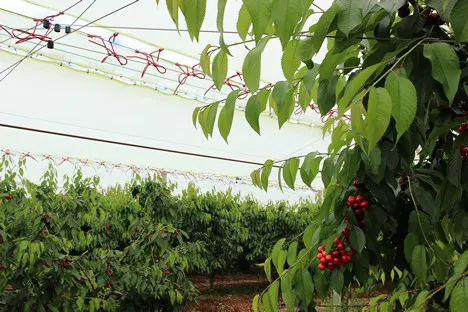Climate change and the related weather phenomena are increasingly bringing focus on agricultural production systems. In May, Italy was plagued by bad weather, and while Emilia Romagna suffered more than any other region, the weather in Sicily also showed little spring-like conditions. Prolonged rainfall was also recorded in Apulia, and this eventuality has rekindled strong interest in plastic covers on orchards, as well as vineyards. We talked about this in an interview with Giuseppe Borracci, new market developer at Serroplast, who pointed out some limitations in using covers because they should not be seen as the sole means of solving all problems, but as tools that contribute to plant protection.

"A plastic film cover on an orchard, in and of itself, results in fairly limited protection," says Borracci. "On the contrary, if the cover is intended as an effective element in line with the needs of the supply chain, then a cover can be considered a valid and effective tool to protect the plant. One must then carefully analyze the investment to be made and determine whether it is worth it. It is certainly worthwhile to cover an orchard if the variety is not obsolete, if the planting layout is streamlined, and if pruning and treatments have been carried out according to proper, state-of-the-art agronomic criteria. The hedging, as a result, is but one component of a coherent system from the production to the commercialization. In short, the project must be considered in its entirety and cannot fail to take into account the needs of exporters, producers, nurserymen and even professional pruners, as well as those who offer technological services like us. Hedging, I reiterate, is one of the variables that can improve the efficiency of the entire production complex, but only if the starting conditions are good. However, if the supply chain is weak and outdated, then not even a modern and efficient coverage can save it."

"There is nothing wrong with saying that in our opinion, the cherry supply chain in Apulia, at the moment, still does not follow standards that are up to the current challenges," continued the manager, "because the varieties are not very productive and the planting patterns not very efficient. In such a context, the investment of a plastic cover will never pay off. We need to start with profitability in the fields, resulting from profitable production conditions that allow a share of the investment to be paid back. These are the starting points for even talking about a roofing project; then we can discuss with what kind of structure and what kind of plastic film, whether more or less transparent, for example, and with the most appropriate technical characteristics for each farm's individual needs. It is at this point that Serroplast's expertise comes into play, to accompany the farmer on his or her production journey, ranging from agronomic management, to knowledge of the varietal landscape, through irrigation and climate management in the field, in any area of the world."
"Serroplast has been developing this know-how for quite some time and is successfully employing it in South America," reveals the expert. "In Chile, in fact, we have invested together with local universities in the study and subsequent realization of covers that replace the 'sackcloth' (i.e., the sheet that serves exclusively to protect plants from rain) with a polyethylene sheet that guarantees high light diffusion to the plant, providing it with a constant percentage of fertility."

"We are certainly not a company that promotes roofing regardless or only to sell," stressed Borracci. "On the other hand, we are not simply distributors or resellers but true manufacturers who look at their customers from an overall perspective and over a medium- to long-term time horizon. Our task is not, therefore, limited to the mere transfer of a product, but we accompany companies, whether large or small, symbiotically in a path that does not end with a supply: our intent is to build a lifelong relationship. In fact, in addition to all the skills to design, build and install a structure, we stand out for our ability to draw up a real business plan, coherent with the needs of the client, from the fruit grower to the viticulturis."
Per maggiori informazioni:
Giuseppe Borracci 
MAGEL SRL
Via Del Commercio, n.c.
70018 - Rutigliano (BA)
+39 348 871 1515
giuseppe.borracci@serroplast.it
+39 080 477 1526
info@serroplast.it
www.serroplast.it
